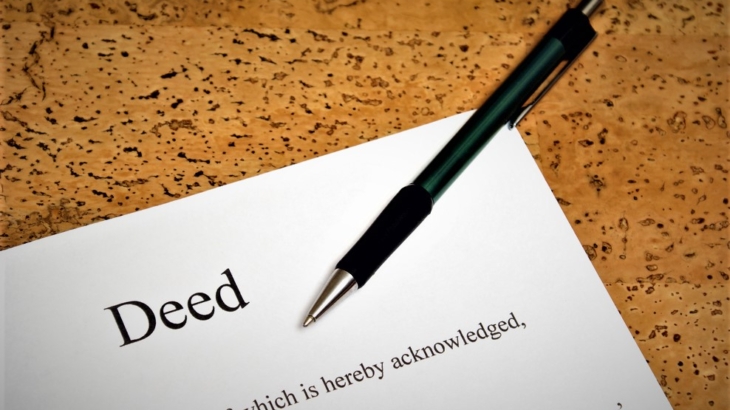Principle of Private Property Ownership To Sustain Liberty, Encourage Commerce and Independence

Essay Read By Constituting America Founder, Actress Janine Turner
In the early 1790s, Representative James Madison was a skilled politician, newspaper polemicist, and member of the Jeffersonian Republican Party. In all of these roles, Madison demonstrated increasing concerns about the centralizing tendencies occurring in the first of the American presidencies which began with the Washington administration. He was especially concerned about Secretary of Treasury Alexander Hamilton’s financial policies regarding the public credit and a national bank.
In late 1791 and throughout 1792, Madison penned a series of eighteen newspaper essays on various topics of government, law, and economics. He wrote them to reflect on various topics related to self-government, but his main purpose was to expose how Federalist Party policies stretched the boundaries of the United States Constitution by expanding the power of the national government.
On March 29, 1792, Madison published one of the essays entitled “Property.” In the essay, he leaned in on the principles of natural rights, the purposes of government, and limited government. These principles were important to Madison because they protected individual liberty. His ideas were heavily influenced by the ideas of Enlightenment philosopher, John Locke.
In his Second Treatise of Government (1689), Locke wrote that all humans are in a state of nature, free and equal in their natural rights. For Locke, property was the most important natural right, and it included possessions but also most significantly a property in one’s person, labor, and rights. He wrote, “Yet every man has a property in his own person…The labour of his body, and the work of his hands.”
Government was established by common consent for the purpose of protecting a person’s property rights. He wrote, “The great and chief end, therefore, of men’s uniting into commonwealths, and putting themselves under government, is the preservation of their property.”
These Lockean ideas fundamentally shaped the Declaration of Independence in 1776. The Declaration lays down natural rights as the basis of self-government. It asserts that “all men are created equal,” and that they were “endowed by their Creator with certain unalienable Rights, that among these are Life, Liberty, and the pursuit of Happiness.” The Declaration also states the fundamental purpose of government is to protect rights. “That to secure these rights, Governments are instituted among Men, deriving their just powers from the consent of the governed.”
In 1792, these ideas continued to shape Madison’s thinking about American constitutionalism when he penned his “Property” essay. Locke clearly helped to influence Madison’s understanding of property as he argued that it included physical property, a person’s opinions, the right to have safety of one’s person, and an individual’s religious liberty. In fact, he described religious conscience as the “most sacred of all property.”
Importantly, while Madison had all of these conceptions of property, he thought that individuals had an inalienable property in their rights. “In a word, as a man is said to have a right to his property, he may be equally said to have a property in his rights,” he wrote.
Like Locke and the Declaration of Independence, Madison believes that government exists to protect inalienable rights especially property. He explains that a just government is one that protects rights, and, conversely, an unjust government violates those rights or fails to protect them adequately. Therefore, he attacks arbitrary government, which is the definition of tyranny. He writes,
Government is instituted to protect property of every sort; as well that which lies in the various rights of individuals, as that which the term particularly expresses. This being the end of government, that alone is a just government, which impartially secures to every man, whatever is his own…That is not a just government, nor is property secure under it, where arbitrary restrictions, exemptions, and monopolies deny to part of its citizens that free use of their faculties.
Madison continued to oppose many of the policies of the Washington and Adams administrations. He served as vice-president under Thomas Jefferson and helped to usher in the “Revolution of 1800,” in which they believed they restored republican limitations on the national government. Madison was elected president in 1808 and served two terms. While his administration reflected his republican ideals from his “Property” essay, he did eventually change his mind on certain centralizing policies he opposed in the early 1790s including signing the Second National Bank into law in 1816. Still, James Madison believed in a natural rights republic and constitutionally limited government throughout his entire life.
The Founders applied the principle of limited government in the Constitution and early republic. The national government had no authority to tax without consent or to take property without consent or compensation. The First Amendment prevented a national establishment of religion and protected religious liberty. George Washington set the great example of limited republican government when resigned from the presidency after two terms.
 Tony Williams is a Senior Fellow at the Bill of Rights Institute and is the author of six books including Washington and Hamilton: The Alliance that Forged America, with Stephen Knott. Williams is currently writing a book on the Declaration of Independence.
Tony Williams is a Senior Fellow at the Bill of Rights Institute and is the author of six books including Washington and Hamilton: The Alliance that Forged America, with Stephen Knott. Williams is currently writing a book on the Declaration of Independence.
Click here for First Principles of the American Founding 90-Day Study Schedule.
Click here to receive our Daily 90-Day Study Essay emailed directly to your inbox.




Join the discussion! Post your comments below.
Your feedback and insights are welcome.Feel free to contribute!